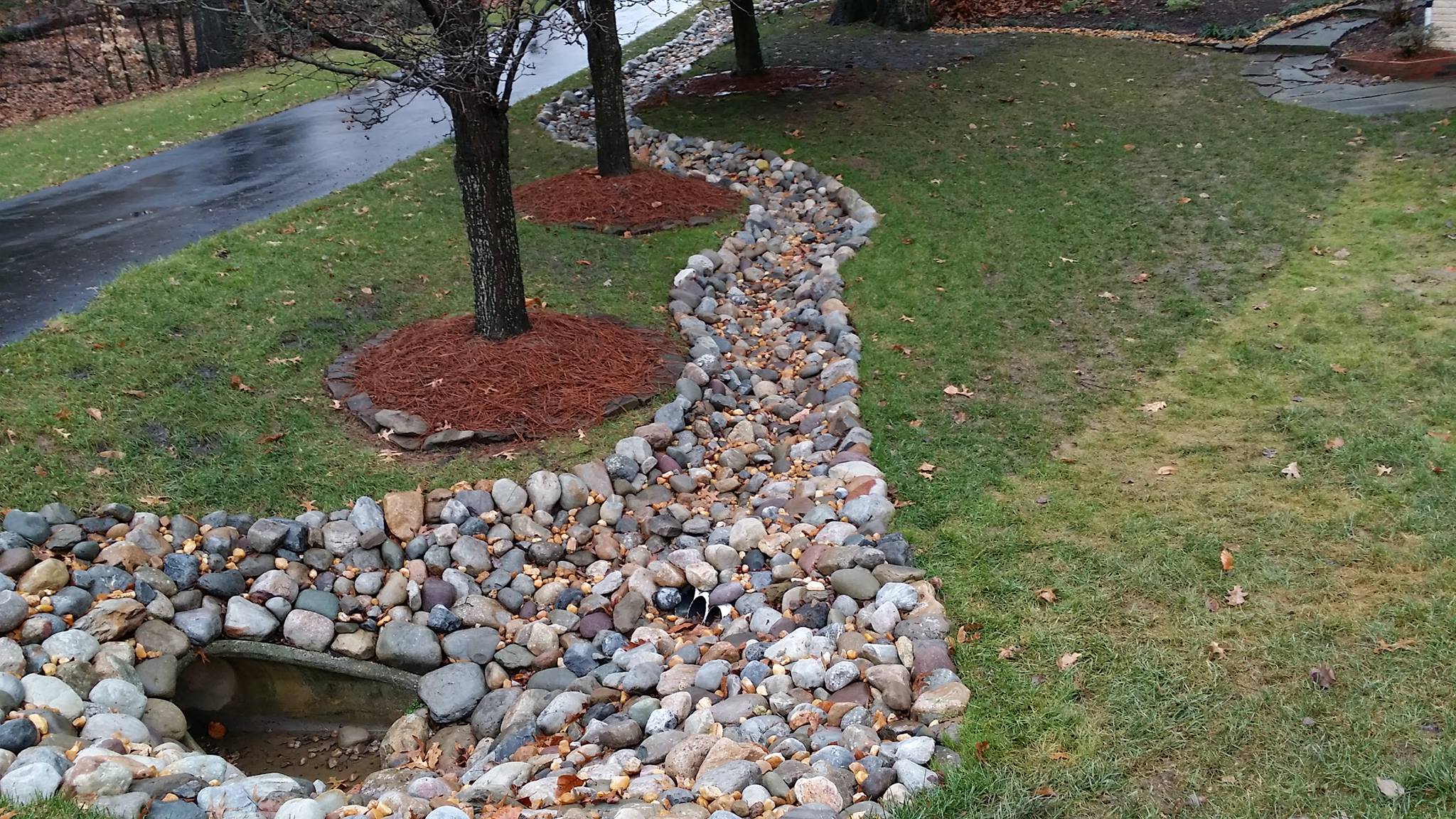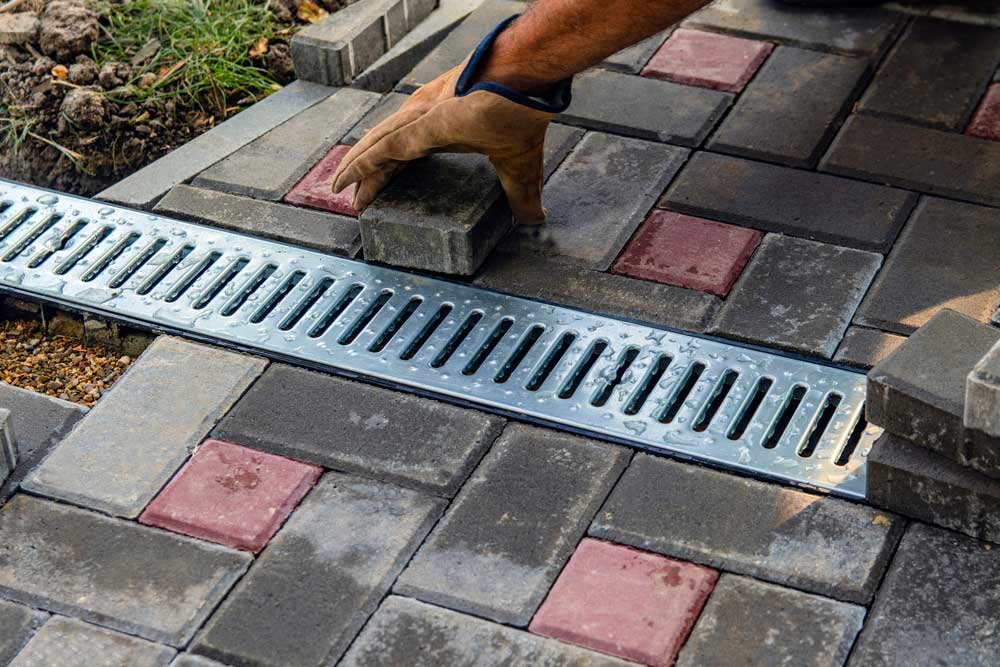Waterlogging is a common challenge for homeowners in Coventry due to the region’s frequent rainfall and varied soil types. When water collects on the surface of your garden or in the soil, it can suffocate plant roots, cause mold growth, and lead to significant plant damage. To maintain a healthy garden and prevent waterlogging, it’s crucial to implement the right drainage system for your yard. This guide explores the best garden drainage system solutions available in Coventry to help you keep your outdoor space dry and vibrant.
Why Waterlogging Happens in Coventry Gardens
Waterlogging occurs when the soil becomes saturated with water that cannot drain away quickly enough. In Coventry, this is often due to the following factors:
- Heavy Rainfall: The region experiences a significant amount of rainfall, which can overwhelm drainage systems, especially in areas with poor soil structure.
- Clayey Soil: Gardens with clay-heavy soils often face poor water infiltration, as clay retains moisture and doesn’t allow it to drain freely.
- Low-Lying Areas: Gardens located in lower areas of the landscape tend to collect water, as water flows downhill and pools in these spots.
- Compacted Soil: Over time, foot traffic, heavy machinery, and garden tools can compact soil, reducing its ability to absorb and drain water effectively.
Best Garden Drainage Systems to Prevent Waterlogging in Coventry
Preventing waterlogging requires the installation of effective drainage systems that can manage excess water and ensure it flows away from your garden. Here are the best drainage systems you can implement in Coventry to keep your garden dry and healthy:
1. French Drains
A French drain is one of the most effective solutions for managing waterlogging in gardens. This system involves digging a trench, filling it with gravel or stones, and installing a perforated pipe to carry water away from problem areas. The water enters the pipe through the holes, then travels through the gravel to a designated drainage outlet, such as a soakaway or storm drain.
Advantages:
- Efficiently redirects water away from garden beds and low-lying areas.
- Can be adapted to various garden sizes and layouts.
- Minimal maintenance once installed properly.
Ideal for: Waterlogged garden areas, areas with poor soil drainage, or gardens with low-lying spots where water tends to pool.
2. Soakaways
A soakaway is an underground system designed to collect and absorb excess water into the ground. Typically made from perforated crates, it allows water to disperse into the surrounding soil over time, preventing surface water accumulation.
Advantages:
- Perfect for absorbing water from downspouts, French drains, or surface runoff.
- Helps reduce surface water flooding and waterlogging.
- Environmentally friendly solution, allowing water to naturally re-enter the groundwater.
Ideal for: Gardens with sufficient space for installation, particularly those with areas prone to flooding or excess water.
3. Surface Water Drains
Surface water drains are designed to collect and redirect rainwater that runs off hard surfaces like patios, driveways, or pathways. These systems are typically installed along the edges of paved surfaces and consist of grated channels or slot drains that collect water and direct it into an underground drainage system.
Advantages:
- Prevents puddling on hard surfaces and waterlogging of surrounding garden areas.
- Ideal for homes with large paved areas or those with driveways and walkways.
- Helps protect foundations by diverting water away from the house.
Ideal for: Properties with extensive paved surfaces where rainwater tends to accumulate.
4. Swales
A swale is a shallow, grassy ditch designed to direct surface water away from garden areas and toward a designated drainage outlet. Swales are typically planted with grass or other vegetation to help absorb water, and they can be integrated into the landscape design to reduce water runoff.
Advantages:
- A cost-effective and natural solution for managing surface water runoff.
- Helps reduce soil erosion and waterlogging in low-lying areas.
- Can be designed to blend seamlessly into the garden’s landscaping.
Ideal for: Gardens with slopes or areas where water tends to accumulate and needs to be redirected.

5. Permeable Paving
Permeable paving is an innovative solution for hard surfaces like driveways, walkways, and patios. Unlike traditional concrete or asphalt, permeable paving allows rainwater to pass through the surface and be absorbed into the ground below, preventing water from pooling on the surface.
Advantages:
- Prevents puddles and standing water on driveways and pathways.
- Reduces the amount of water runoff and helps maintain soil moisture levels.
- Ideal for areas that need both functional and aesthetic paving solutions.
Ideal for: Driveways, patios, and walkways in areas that experience heavy rainfall and where waterlogging is a concern.
6. Sump Pump Systems
In extreme cases of waterlogging or flooding, a sump pump system can be installed in the lowest point of your garden. The pump collects excess water from a sump pit and directs it away from the garden, preventing it from accumulating in low-lying areas.
Advantages:
- Ideal for properties prone to heavy flooding or extreme waterlogging.
- Quickly removes water from the garden, preventing long-term damage to plants or garden structures.
- Can be connected to a French drain or surface water drain for enhanced efficiency.
Ideal for: Gardens located in flood-prone areas or properties that experience regular heavy rainfall.
How to Choose the Right Drainage System for Your Garden in Coventry
Selecting the right drainage system for your garden depends on several factors, including the size of your garden, the extent of waterlogging, the type of soil, and your garden’s layout. Here’s how to make the right choice:
- Assess Your Drainage Needs: Start by identifying areas in your garden prone to waterlogging or pooling. Is the problem widespread, or is it localized to certain spots? Understanding the source and extent of the waterlogging will help you choose the best solution.
- Soil Type: If your garden has heavy clay soil, consider installing a French drain or soakaway to improve water infiltration. For sandy or loamy soils, surface drains or permeable paving might be more effective.
- Budget and Maintenance: Consider the upfront cost and ongoing maintenance required for each system. French drains and soakaways require minimal maintenance, while sump pumps and surface water drains may require more regular upkeep.
- Professional Consultation: If you’re unsure which system is best for your garden, consult with a drainage expert in Coventry. They can assess your garden and recommend the most effective solution based on your specific needs.
